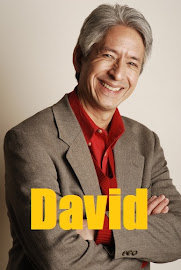December is the time for families, food, lights, and
gift-giving, right?
Just as I’ve done for many years, I participated in dramatic
readings of “A Christmas Carol” with actor friends at nursing homes and
retirement centers, and helped serve hundreds of meals to low-income and
homeless citizens at Temple Beth Israel synagogue on Christmas Day.
But my personal entertainment took an oddly apocalyptic turn
in December. I don’t mean zombies and post-nuclear war battles, but actual,
serious looks at Where We May Be Headed. This didn’t happen by conscious choice
or design -- impulse decisions at the library and suggestions by friends in one
of my book clubs set the stage -- but it’s odd how they all came together this
month.
Carole and I had waited a while to get our hands on the
first-season DVD set of True Detective
from the library. Several weeks ago we raced through the episodes in barely a
weekend. In the pilot, a monologue by Matthew McConnaughey’s character “Rust” Cohle
includes the following passage:
I think human consciousness was a tragic misstep in evolution. We became too self-aware. Nature created an aspect of nature separate from itself. We are creatures that should not exist, by natural law. … I think the honorable thing for our species to do is deny our programming. Stop reproducing. Walk hand in hand into extinction … one last midnight … brothers and sisters opting out of a raw deal.






















